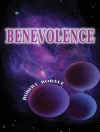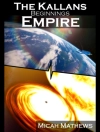The anthology ‘The Greatest Sci-Fi Books of All Time’ assembles a breathtaking tapestry of speculative fiction that transcends centuries and styles, offering a curated journey through the realms beyond our reality. This collection showcases the enduring legacy of science fiction, encompassing everything from surreal voyages and utopian dreams to cautionary dystopias and cosmic horror. Readers will uncover pioneering narratives that have shaped the genre, becoming timeless in their inventive visions. Each story stands out in its ability to transport the reader and provoke thought, making this anthology a treasure trove for enthusiasts seeking both entertainment and enlightenment. The anthology features an illustrious roster of authors, representing some of the most influential voices in literary history. From Jules Verne’s adventurous foresight to H. G. Wells’ thought-provoking social commentaries, these writers have collectively molded science fiction into a respected literary form. Their works resonate with historical and cultural movements, such as industrialization, imperialism, and the scientific advancements of their time. By weaving together these diverse voices, the anthology deepens our appreciation of science fiction’s capacity to reflect and challenge societal constructs. Recommended to both seasoned aficionados and newcomers to the genre, this anthology offers an unparalleled exploration of science fiction’s evolution and its myriad interpretations. Readers are invited to immerse themselves in a rich array of perspectives and storytelling techniques, which not only entertain but also inspire critical reflection on humanity’s past, present, and possible futures. ‘The Greatest Sci-Fi Books of All Time’ stands as a testament to the genre’s enduring significance, fostering a dialogue that bridges diverse ideas and eras within its pages.
About the author
Jules Verne (1828-1905) stands as one of the pioneering figures in the annals of science fiction literature. Born in the French port city of Nantes, Verne cultivated a lifelong fascination with travel and technological innovation, elements that would later become hallmarks of his writing. He embarked upon a law career, but the siren call of literature lured him from the legal path to become a prodigious storyteller, whose imaginative narratives were grounded in the scientific knowledge of his time. Verne’s opus includes ‘Journey to the Center of the Earth’ (1864), ‘Twenty Thousand Leagues Under the Sea’ (1870), and ‘Around the World in Eighty Days’ (1873), each a testament to his visionary scope and influence on the speculative fiction genre. Though the book title ‘The Greatest Sci-Fi Books of All Time’ does not directly correlate to a specific work by Verne, it evokes the descriptive sentiment widely held regarding his oeuvre. His prose, often categorized under the ‘extraordinary voyages’ series, not only entertained but also educated his readers about the world’s possibilities, blending adventure with pedagogy in a narrative style that was both engaging and enlightening. Verne’s novels have been translated into countless languages, making him one of the most translated authors in history and earning him the moniker of ‘the Father of Science Fiction’ along with H.G. Wells. His literary legacy endures in the hearts and minds of readers and writers who continue to be inspired by his visionary perspective on humanity’s potential.












